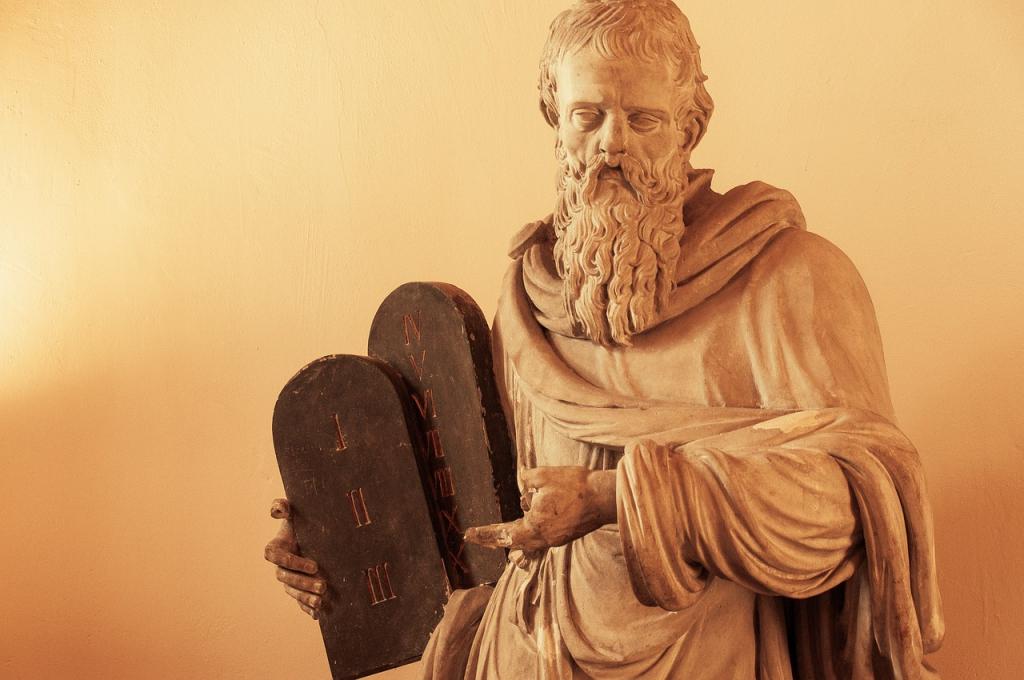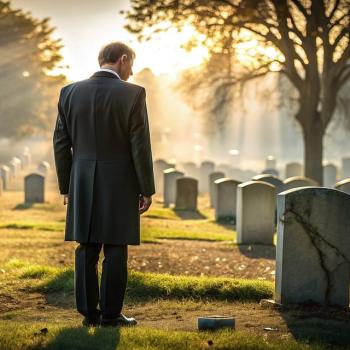In theory, moral relativism is the worst kind of morality. However, in practice, it is the only kind of morality.
Some people who have not practiced other traditions wonder if they are legitimate. Were their gods made up? Were their scriptures human inventions? Are they moral without commandments? But, this assumes that OUR gods are not made up and that OUR scriptures are not human inventions. Also, this assumes that OUR commandments are absolute, clear, and unchanging.
“Thou shalt not kill.” NEVER? “Only to act in self-defense or to fight ‘just wars’ or to protect innocents…” “Thou shalt not steal.” NEVER? “Only to feed your family or to protect others or…” So, these commandments are NOT absolute, clear, or unchanging, after all. And neither are the exceptions. What is a just war? What is self-defense? Who is an innocent?
What good is an absolute ethical code if it only helps us with easy decisions? I wrote about the Golden Rule here. It is effective because it requires us to exercise our judgment, not to suspend it.
Consider the difference between traditions with rigid commandments and traditions with flexible precepts or principles. The difference is NOT that the former is absolute and the latter is relative. No, the difference is that the former represents that commandments are absolute, and the latter realizes that precepts and principles, like commandments, are relative.
How do other sacred and secular traditions make ethical decisions in the absence of “absolute” commandments?

The Eightfold Path
Some people believe that the Golden Rule is the only ethical precept that they need. In the Christian tradition, the Golden Rule is often considered to be one of Jesus’ most foundational teachings. My one-line creed is that “Everyone is related, and everything is connected,” which gets to the same place. As Martin Luther King, Jr. said, “Whatever affects one directly, affects all indirectly.”
So, in Buddhism, the Eightfold Path is the last of the Four Noble Truths, which are the practices that Buddha taught to liberate ourselves from suffering and to reach enlightenment:
- Right view
- Right intention
- Right speech
- Right action
- Right livelihood
- Right effort
- Right mindfulness
- Right meditation
Like the Golden Rule, precepts such as the Eightfold Path require us to exercise our judgment, not to suspend it. What is “right” view or “right” intention? Presumably, right view or right intention produces the least suffering. “First, do no harm,” as they say in the medical profession. “Don’t be evil,” as they used to say at Google.
The Five Precepts
So, in addition to the Eightfold Path, Buddhism also holds Five Precepts, which form the foundational guidelines for ethical behavior:
- Not killing
- Not stealing
- Not misusing sex
- Not engaging in false speech
- Not indulging in intoxicants
At first glance, these appear similar to some of the commandments in the Christian tradition. At the same time, most Buddhists consider these precepts as guidelines, not commandments. Sometimes, they are interpreted more broadly than commandments. Some Buddhists consider the prohibition on killing to apply to all sentient beings and to the environment itself.
Also, the prohibition on misusing sex is often interpreted more broadly. Thus, rather than prohibiting only adultery, misusing sex might pertain to married people who mistreat each other, too. Many Buddhists consider motivation and situation to determine whether sex is misuse. Was there consent or exploitation or harm or objectification involved?
Again, the Five Precepts require us to exercise our judgment, not to suspend it. Arguably, the Five Precepts impose a higher standard than seemingly absolute and narrow commandments.
The Hippocratic Oath
The Hippocratic Oath has provided ethical guidance in the medical field for over 2,000 years. Here is an excerpt from the Oath of Modern Hippocrates at Penn State University School of Medicine, which mentions the alleviation of suffering and paraphrases the Golden Rule:
“I shall do by my patients as I would be done by; shall obtain consultation whenever I or they desire; shall include them to the extent they wish in all important decisions; and shall minimize suffering whenever a cure cannot be obtained, understanding that a dignified death is an important goal in everyone’s life.”
Again, the Hippocratic Oath requires us to exercise our judgment, not to suspend it. What would I desire if I were a patient? Which course will minimize suffering and preserve dignity?
In theory, moral relativism is the worst kind of morality. However, in practice, it is the only kind of morality.
If you want to stay up to date on the latest from You Might Be Right, simply subscribe with your email.
The Way is a Silver winner in the 2024 Nautilus Book Awards in the Religion/Spirituality of Other Traditions category.














